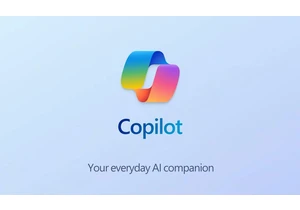The James Webb Space Telescope, NASA’s successor to the Hubble Space Telescope, has captured new images of the auroras at Jupiter’s north pole. These massive auroras, caused by charged particles crashing into Jupiter’s atmosphere, are hundreds of times brighter than our own Aurora Borealis, and, for the first time, we can now see them in greater detail thanks to these new images.
Auroras on Earth are caused by solar storms, which occur when charged particles from the Sun collide with our upper atmosphere. This energizes the gases in the atmosphere, which gives them that distinctive colored glow that we know as the Northern (or Southern) Lights.
Among the coolest things we’ve gleaned from the telescope’s observations is that particles from solar storms are not the only source for Jupiter’s auroras. The giant planet’s strong magnetic field is also pulling in charged particles from its surroundings, which includes particles thrown into the atmosphere from volcanic eruptions on Io, a moon orbiting Jupiter. Together, these varied sources lead to a more complex auroral system than the one on Earth.
The high sensitivity of Webb’s NIRCam (Near-Infrared Camera) helps shed light (pun intended) on the rapidly changing features of Jupiter’s auroras. Scientists were able to see details and bright spots that weren’t visible with Hubble. Jonathan Nichols, who leads the team at the UK’s University of Leicester that captured the images, shared his excitement over the discovery with NASA.
In describing seeing the images, he said, "What a Christmas present it was — it just blew me away!" In describing what they learned from the images, he explained: "We wanted to see how quickly the auroras change, expecting them to fade in and out ponderously, perhaps over a quarter of an hour or so. Instead, we observed the whole auroral region fizzing and popping with light, sometimes varying by the second."
The team was able to capture images of the auroras from the Hubble and Webb telescope simultaneously, which allowed them to directly compare data from both Ultraviolet and Near-Infrared images at once. It became evident with these comparisons that the Webb telescope was capturing details and nuance that the Hubble was completely missing. This is a testament to the power of the newer telescope and raised further questions about how the auroras function.
Researchers hope these findings will help them further understand the inner workings of Jupiter’s magnetic field, and even help provide insights into how the planet heats and cools. There is a lot to learn about the gas giant’s atmosphere, and these images are just one step along the way.
This article originally appeared on Engadget at https://www.engadget.com/science/space/nasas-webb-telescope-captures-mesmerizing-images-of-jupiters-auroras-171107945.html?src=rss https://www.engadget.com/science/space/nasas-webb-telescope-captures-mesmerizing-images-of-jupiters-auroras-171107945.html?src=rssJelentkezéshez jelentkezzen be
EGYÉB POSTS Ebben a csoportban


Despite it having upward of 61,000 reviews on Steam, Hades II isn’t actually out yet. The sequel to Supergiant Games’ hugely successful roguelite dungeon crawler has been in early access o



Dutch company Fairphone continues to lead the charge on consumer- and planet-friendly electronics, proving that a great phone doesn't have to be impossible to repair or environmentally unsustainabl


Prime Day 2025 will be here in a few days, but you can already shop great tech deals on Amazon before the July 8-11
